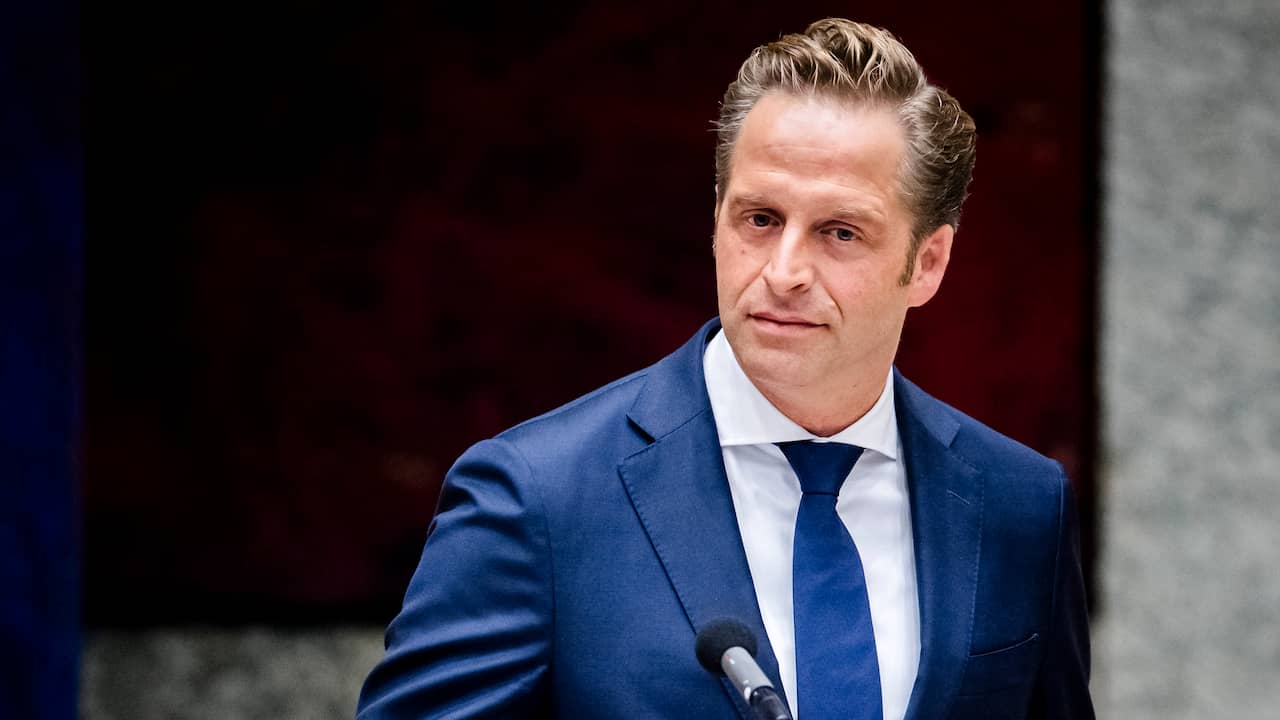The Netherlands is purchasing 7.8 million doses of the corona vaccine that is being developed by the Leiden pharmaceutical company Janssen Pharmaceutica, Minister Hugo de Jonge (Public Health) announced Thursday. If development of the vaccine is progressing well, it should be available from the first quarter of 2021. De Jonge emphasized in the parliamentary debate on the corona law that as soon as there is a working vaccine, no one will be obliged to take an injection.
“I am not in favor of a vaccination obligation, because I think this will undermine the support for vaccination. We really need that support,” said De Jonge.
There is currently no basis in the law that obliges people to do so and the minister does not intend to amend the law. Moreover, the minister thinks that people who do not want to be vaccinated cannot be vaccinated.
De Jonge says he can imagine that healthcare institutions will ask employees to be vaccinated if they work with vulnerable people. “You can pronounce that, but you cannot make it compulsory.”
‘Most promising asset is a vaccine’
At the same time, the minister emphasized that a vaccine is one of the most important means of defeating the corona virus. “I cannot predict the end of the pandemic. But the most promising asset is vaccination,” said De Jonge.
In addition to purchasing the vaccine from Leiden, the cabinet has already purchased two other hopeful vaccines in development. “We bet on all the horses that have the best chance.”
De Jonge felt called upon to speak out clearly against a vaccination obligation, after the SGP and Groep Krol, among others, had asked questions about this during the treatment of the corona law. De Jonge emphasized that such a duty has never been included in the emergency act.
Around the announcement of the corona law, unrest has arisen in some parts of society, including among conspiracy thinkers. De Jonge: “I recognize the intensity of social concerns in most corona measures that are announced. In a polarized climate, with deliberate misinformation, it is not easy to communicate measures.” He appealed to the House to prevent the spread of misinformation in order to prevent polarization.
De Jonge acknowledges that the announcement of the corona law could be better
But there are also serious concerns among parties in the House of Representatives and legal scholars. In particular about the provision that the minister can limit fundamental rights to a large extent without the intervention of the House.
At that point De Jonge put his hand into his own bosom. According to him, the announcement of the corona law should have been better. “We should have given ourselves more time, been more transparent and given more explanation about the law.” In retrospect, De Jonge thinks it would have been better to take more time for the public debate before submitting the law to the House.
The corona law is intended to put an end to the way in which measures, such as keeping distance and limiting group sizes, are currently regulated. It is now the case that the safety regions implement the measures in an emergency ordinance after a designation from the Minister of Health.
This involves two major problems: the House of Representatives and municipal councils are not involved and emergency ordinances that drastically restrict fundamental rights are not intended to apply for a longer period.
Chamber fixes ‘democratic deficit’, SP not reassured
After strong criticism of these points and the intention to check behind the front door whether people comply with the rules, the cabinet amended the law. But the House of Representatives found that insufficient. The Minister of Health could still rule “by decree”.
The coalition parties and GroenLinks, PvdA, 50PLUS and SGP have therefore come up with a laundry list of adjustments. The House of Representatives wants a week to vote on new announced measures.
If the cabinet has to intervene immediately out of necessity, a measure can take effect immediately and the House will be given a week to approve it. The safety net provision, which offers the cabinet the opportunity to come up with measures that are not described in the corona law, will disappear. In addition, the corona fine will be reduced to 95 euros and recipients will no longer receive a criminal record.
There is already a majority in favor of the law. At the same time there is also criticism. Because when is there an emergency measure that puts Parliament another week behind? SP member Maarten Hijink pointed out in the debate that the cabinet is constantly lagging behind the facts due to a lack of strategy.
“We saw in the summer that the infections were rising and it was only last week that the cabinet came up with emergency measures. An appeal for emergency will not be possible if the cabinet is well prepared,” said Hijink. “You don’t want to be overwhelmed by measures that should have been discussed in Parliament for a long time.”
– .


